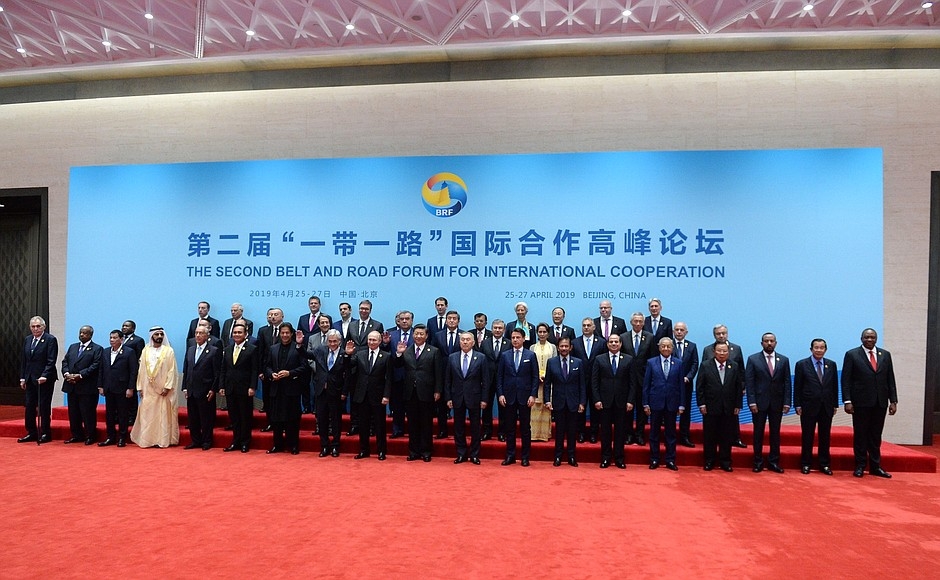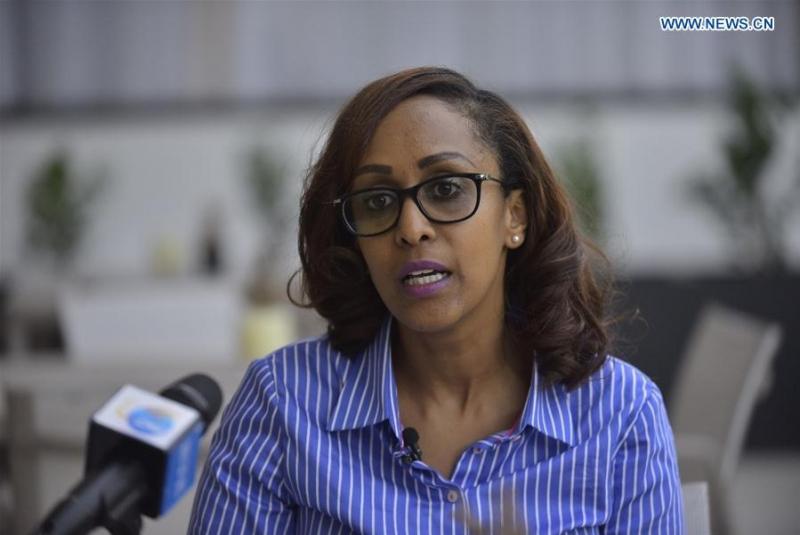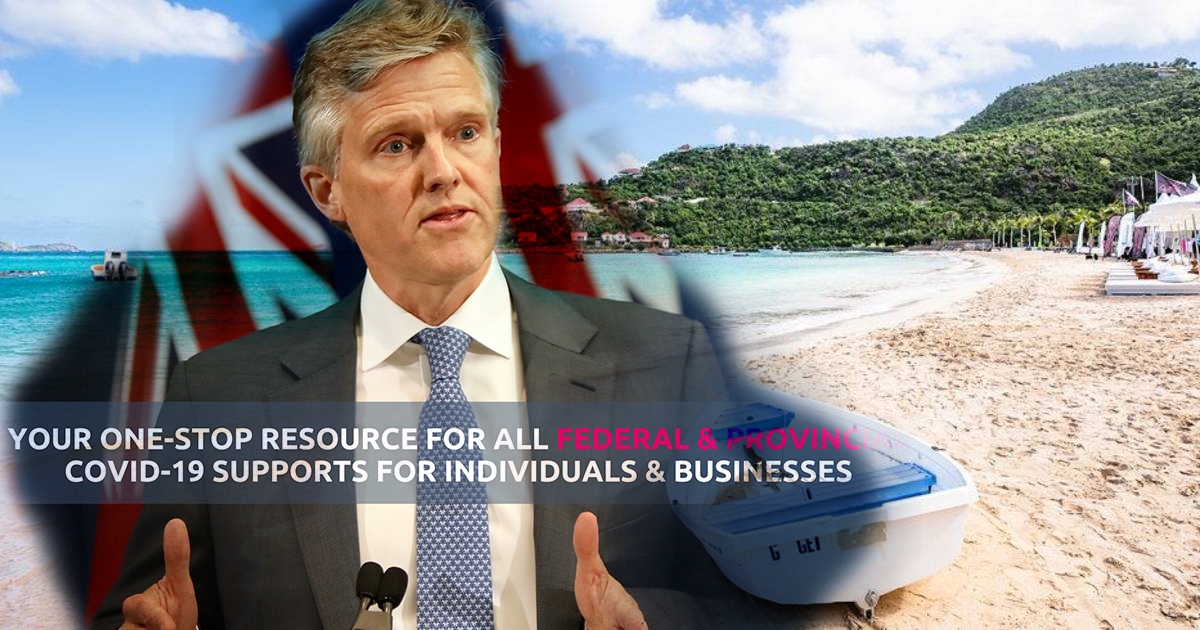
What 10 Participating Countries Said About the Belt and Road Initiative
Since the Belt and Road Initiative (BRI) was first unveiled in 2013, 126 countries and 29 international organizations have signed cooperation agreements with China to jointly build the BRI. While many countries are fully supportive of this initiative others remain skeptical towards it. To counter these beliefs, here is an outlook of what 10 BRI participants have said about the initiative.

1. Chilean Foreign Minister: Robert Ampuero
Chile’s foreign minister Robert Ampuero signed a cooperative agreement with China under the BRI in November 2018. Ampuero said that “we are happy because this initiative will allow us to enter a new stage of collaboration between both countries”. He added that “Fundamentally it will allow us to explore the many ways to cooperate and develop infrastructure for our country. And that is what we need in Chile, we are a country that has modernized a lot that needs investments and financing in infrastructure.” This agreement is sure to make Chile the “landing point for investments in Latin America,'' said Roberto Ampuero.

2. Czech President: Miloš Zeman
China and the Czech Republic signed a Memorandum of Understanding to promote the BRI in 2015, and in 2016 Chinese President Xi Jinping visited the Czech Republic to further build on the Sino-Czech relations. “The One Belt, One Road initiative is the most significant project in all our modern history. I salute China for this courageous, long-term project,” said Zeman. He wants to encourage, “Czech companies to participate in the construction of the new Silk Road.” Zeman also believes that the Czech Republic can be “one of the possible countries for communication to European countries” to promote the BRI.

3. Ethiopian Spokesperson for Prime Minister Abiy Ahmed: Billene Seyoum Woldeyes
Since establishing diplomatic ties with China nearly 50 years ago, participating in the BRI seems to be the only natural progression of the relationship between the two countries. “I see BRI as a natural progression of the relationship that Ethiopia and China have had over the years,” said Billene Seyoum Woldeyes, Spokesperson for Ethiopian Prime Minister Abiy Ahmed, adding, “it has also become a critical element in facilitating the relations between the two countries.” Going forward Seyoum believes that “the expectation is really about a more enhanced partnership with China, mainly by taking the advantages of the opening up of the economy that followed recent Ethiopian economic sector reforms.”

4. Greek Prime Minister: Alexis Tsipras
In April 2019, Greece joined the 16+1 Initiative of Central and Eastern European countries plus China as the 17th member. Tsipras believes that Greece’s inclusion in the initiative was “a very significant development.” He added that “We highly value the importance of this initiative for people-to-people contact, cultural exchanges and tourism and we see the great opportunities in the 21st century Maritime Silk Road”. Tsipras also expressed that Greece needs to “leave the crisis behind and build new foundations to support our regional and global cooperation.''

5. Italian Prime Minister: Giuseppe Conte
Italian Prime Minister Giuseppe Conte attended the second Belt and Road Forum in April 2019. During President Xi Jinping’s visit to Italy a month before the forum, both countries signed of different businesses and commercial agreements to make Italy the first country of the G7 to join the BRI. Conte said his country was building a “more effective relationship” with China. China and Italy were at both ends of the ancient Silk Road, which according to Conte reaffirms Italy’s decision to cooperate under the BRI. “With all the necessary precautions, Italy’s accession to a new silk route represents an opportunity for our country,” Conte added.

6. Kenyan President: Uhuru Kenyatta
Kenyan President Uhuru Kenyatta met with President Xi during the second Belt and Road Forum during which Kenyatta expressed his willingness “to strengthen cooperation with China in fields such as infrastructure development to promote the initiative further to the central and western African regions.” He added that he appreciates “China’s important role in promoting the regional peace reconstruction in Africa,” and “hopes to strengthen communication and coordination with China on regional and multilateral affairs.”

7. Lao President: Bounnhang Vorachith
During an interview with Chinese media, Lao President Bounnhang Vorachith emphasized the fact that "mutual benefit and win-win cooperation is the reality of today’s world.” He added that the “The Belt and Road Initiative was proposed by China at the right time, and helps strengthen cooperation through facility connection, financial connection and people-to-people connection. The initiative helps create opportunities and improve the socio-economic in Laos and other developing countries.” Cooperation between China and Laos has been successful with the construction of the China-Laos Railway, a project of more than 400 km, initiated under the BRI.

8. Pakistani President: Arif Alvi
Ahead of the Chinese Spring Festival, Pakistani President Arif Alvi sent his New Year greetings to the Chinese people in February 2019, which underlines the importance and value of the Pakistan-China relationship. Alvi believes that the “co-operation between Pakistan and China would not only bring peace and stability to the region but also the world.” As shown by the development of the China-Pakistan Economic Corridor, which according to the President will bring “bring economic prosperity to Pakistan,” the “Gwadar port is being developed the economy of Pakistan will also improve.”

9. Russian President: Vladimir Putin
Russian President Vladimir Putin spoke at the opening of the second Belt and Road Forum in April 2019, which demonstrates the strong relationship that has formed between China and Russia. During his speech, Putin called the BRI “an extremely important initiative” as he believes that China’s project is very close to Russia’s vision for Euroasia, which aims to promote peace and prosperity on the continent. He also believes that the BRI is “intended to strengthen the creative co-operation of the states of Eurasia.”

10. Swiss President: Ueli Maurer
Last January, President Ueli Maurer spoke during the first Sino-Suisse meeting in Zurich. During his speech, he defended the idea that “Criticism is fine, but only criticizing is never a solution. At some point, you have to decide whether you want to hinder development and progress or take part in it, contribute and have an influence. I think it’s better to play a part and want to change things in a positive sense.” He also added that “No country, except China, view things from the long-term perspective. The BRI is a hundred-year project.” Maurer notes the BRI’s importance for the generations to come.








